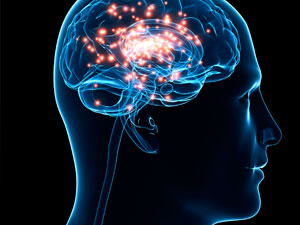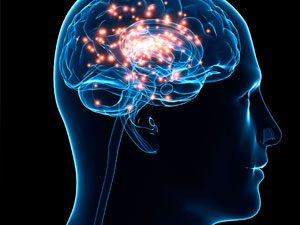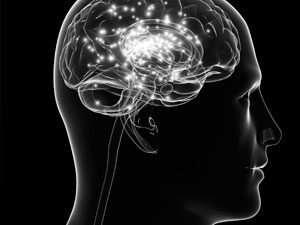
Dr. Jimmy Stehberg: El impacto del estrés en el cerebro humano
Si bien a lo largo de la historia moderna, la neurociencia ha logrado grandes avances, el cerebro humano continúa escondiendo intrigantes misterios. En este contexto, el Dr. Jimmy Stehberg, académico del Centro de Investigaciones Biomédicas de la Universidad Andrés Bello, lidera diversas líneas de investigación que tienen como objetivo aportar nuevos conocimientos a la relación de ciertos procesos cerebrales con la aparición de enfermedades psiquiátricas como depresión y ansiedad.

A través de un proyecto financiado por Fondecyt, el Dr. Stehberg junto a su equi- po, trabajan en determinar el papel que juega la ínsula -una estructura dentro del cerebro humano- en la regulación del estrés y en sus potenciales consecuencias, como la depresión y la ansiedad.
“Nuestro principal interés es conocer cómo ciertos neurotransmisores y hormonas del estrés afectan la función de la ínsula para orquestar la respuesta del individuo frente a situaciones de estrés”, explica el académico de la Facultad de Ciencias Biológicas.
Agrega que dentro de las conclusiones logradas destacan que el suministro de algunos neurotransmisores en la ínsula logra bloquear el miedo en ambientes estresantes. Además agrega que “con nuestra investigación hemos descubierto que la ínsula es una región del cerebro crítica en regular la respuesta ansiosa ante ambientes nuevos y a situaciones de estrés”.
De la misma forma, el Dr. Jimmy Stehberg lidera una investigación financiada por Corfo, a través de la cual se pretende diseñar antidepresivos y ansiolíticos que no tengan efectos sobre las neuronas, sino que sobre otras células del cerebro, llamadas astrocitos. Estos prometen tener efectos muy rápidos con mecanismos de acción diferentes a los fármacos hoy disponibles.
Paralelamente, el investigador desarrolla estudios sobre el rol que cumplen los astrocitos en diferentes funciones cerebrales y enfermedades psiquiátricas. “Por años se creyó que sólo las neuronas cumplían una función trascendental en el cerebro; no obstante, hoy sabemos que los astrocitos configuran redes esenciales para la memoria y otras funciones cerebrales, y cuya disfunción es crítica en el desarrollo de enfermedades psiquiátricas y neurológicas”.
“Es por esto, que en nuestro laboratorio desarrollamos investigación sobre el rol que cumplen los astrocitos en patologías como el estrés post traumático, la depresión y la ansiedad”, expone el académico del Centro de Investigaciones Biomédicas.
Descargar PDF: El impacto del estrés en el cerebro humano
The impact of stress on the human brain
While the field of neuroscience has significantly advanced over the course of modern history, the human brain continues to hold a number of mysteries. Dr. Jimmy Stehberg, an investigator for the Center of Biomedical Research at the Universidad Andrés Bello, aims to unravel some of these mysteries by investigating the relationship of certain cerebral processes with the appearance of mental disorders such as depression and anxiety.

Through a Fondecyt-financed project, Dr. Stehberg and his team are working on determining the role played by insulin, a hormone within the human brain, in regulating stress. Also being evaluated are the potential consequences of the insulin-controlled stress response on disorders such as depression and anxiety.
“Our principal interest is in understanding how certain neurotransmitters and stress hormones affect the function of insulin to orchestrate a response of the individual to stressful situations,” explains Dr. Stehberg.
Among the conclusions already drawn, of note is that a supply of some insulin neurotransmitters can block fear in stressful environments. Dr. Stehberg adds that, “through our research, we have discovered that brain insulin is critical in regulating the anxiety response to new environments and stressful situations.”
Dr. Stehberg also leads a related investigation financed through Corfo, the aims of which are to develop anti-depressives and anti-anxiety medications that do not act through the neurons but, rather, through astrocytes, another type of brain cell. These medications promise to have rapid effects as they will function via different mechanisms than the currently available pharmaceuticals.
In parallel, studies are being performed to understand the roles played by astrocytes in different brain functions and mental disorders. “For years it was believed that only neurons had transcendental functions in the brain. However, today we know that astrocytes comprise networks essential for memory and other cerebral functions. The dysfunction of astrocytes is critical in the development of mental and neurological disorders.”
“It is due to this that our laboratory is investigating the roles played by astrocytes in pathologies such as post-traumatic stress, depression, and anxiety,” explains Dr. Stehberg.
Download PDF: The impact of stress on the human brain
